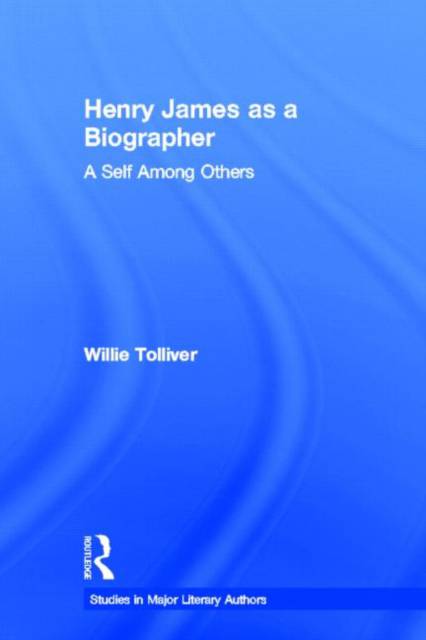
Door een staking bij bpost kan je online bestelling op dit moment iets langer onderweg zijn dan voorzien. Dringend iets nodig? Onze winkels ontvangen jou met open armen!
- Afhalen na 1 uur in een winkel met voorraad
- Gratis thuislevering in België vanaf € 30
- Ruim aanbod met 7 miljoen producten
Door een staking bij bpost kan je online bestelling op dit moment iets langer onderweg zijn dan voorzien. Dringend iets nodig? Onze winkels ontvangen jou met open armen!
- Afhalen na 1 uur in een winkel met voorraad
- Gratis thuislevering in België vanaf € 30
- Ruim aanbod met 7 miljoen producten
Zoeken
Omschrijving
This study of Henry James's biographies of Nathaniel Hawthorne and William Wetmore Story offers an argument that he deserves greater recognition for his contributions to the development of biography, based on his implicit theory of biography, found in his critical commentary and on these two complicated and ultimately artistically innovative performances in the genre. Although James maintained an ambivalent relationship to the art of biography, in his reviews, criticism, letters and fiction, he wrote about biography from a core of aesthetic conviction that constitutes an informal poetics. It is necessary thus to scrutinize the ways in which James's theoretical convictions, particularly his insistence on artistic unity, fail him when he writes two biographies himself. Both Hawthorne (1879) and William Wetmore Story and His Friends (1903) fail to cohere in the way traditional biographies achieve unity. Neither work has at its center a dynamic and fully dimensional apprehension of the biographical subject. Instead James violates one of his own essential biographical tenets. He usurps his subject and places himself at the center of what should be a narrative of his subject's life. The results fall short of fully achieved biography, but they do not fall short of literary interest. In order to write these books according to his own genius, James had to reinvent the form. They are rife with innovations, chief among them his great experimentation with narrative point of view, here brought to bear on biography. This concept and others survey the terrain for the important biographical practitioners and theorists who follow him. For this reason, a special place must be found for James in pantheon of experimental biographers.
Specificaties
Betrokkenen
- Auteur(s):
- Uitgeverij:
Inhoud
- Aantal bladzijden:
- 196
- Taal:
- Engels
- Reeks:
- Reeksnummer:
- nr. 3
Eigenschappen
- Productcode (EAN):
- 9780815339588
- Verschijningsdatum:
- 16/08/2000
- Uitvoering:
- Hardcover
- Formaat:
- Genaaid
- Afmetingen:
- 159 mm x 238 mm
- Gewicht:
- 390 g

Alleen bij Standaard Boekhandel
+ 364 punten op je klantenkaart van Standaard Boekhandel
Beoordelingen
We publiceren alleen reviews die voldoen aan de voorwaarden voor reviews. Bekijk onze voorwaarden voor reviews.











